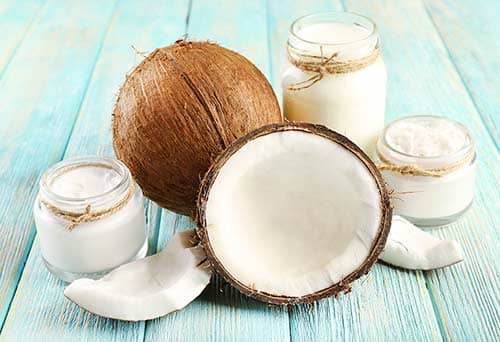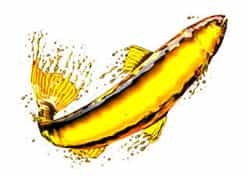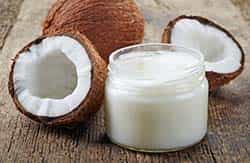Fats and Your Health

Remember when animal fat was bad? Remember how this sentence freaks you out because you still think it's bad and didn't know it's good? There's so many terms and classifications when it comes to fats. This month I wanted to help break this down for you so that you're eating good fats that keep you healthy instead of avoiding fat which, YES, can make you fat!
Why Do We Need Good Healthy Fats?
- Our brain is made up of mostly fat. In order for your brain to function properly, good healthy fat is a must.
- Fat is a source of slow burning energy
- Fat slows down the absorption of food for proper energy regulation
- Fat helps aid in the production of your body's inflammatory response
- Fat is the main fuel for muscles including the heart
- Fat helps aid in healthy hormone balance
- Fat keeps you FULL so you aren't snacking throughout the day
- Fats help aid in the function of the liver and gallbladder
- Fat tastes yummy!
Classifications of Fats
There are three main types of fat to keep an eye out for when you're at the grocery store. Here is a very brief explanation of each and a few examples of good choices when you're shopping!
Saturated Fats
Are highly stable in nature, they do not turn rancid easily, even at high temperatures. These are great fats to consume. They include:
- Animal fat from pasture raised animals
- Grass fed butter
- Ghee
- Coconut and palm oils
Monounsaturated Fats
Are relatively stable, do not turn rancid easily they are liquid at room temperature, but semi-solid upon refrigeration. These include:
- Olive oil
- Almond Oil (most nut oils)
- Peanut Oil
- Avocado Oil
Polyunsaturated Fats
Are unstable even at room temperature, easily damaged by heat, light, moisture, and oxygen exposure and refrigeration is required. These include:
- Flax oil
- Fish
- Seed oils (hemp, chia, pumpkin)
Essential Fatty Acids (EFAs) (includes Omega 3 & Omega 6)
These are essential to your health. Our bodies cannot make these fats on their own, therefore we must consume them in our diet. 1 teaspoon per day is sufficient.
Most American's consume way too much Omega 6 and not nearly enough Omega 3's. This is due to highly processed diets. Ideally you're consuming a ratio of 1:1 for Omega 6 & Omega 3. The Standard American Diet (SAD) is nearly 19:1 of Omega 6 to Omega 3.
Here's a few healthy (and essential!) Omega Oils to include in your diet:
Omega 3

- Fish oil
- Flaxseed oil
- Wheat germ
- Walnuts
- Hemp seeds
Omega 6
- Blackcurrant seed
- Evening primrose
- Sunflower oil
- Sesame oil
Good Fats vs. Bad Fats
Good Fats are considered healthy because they occur in nature and are not highly processed. Bad Fats are highly processed using chemical solvents under a tremendous amount of heat. By the time these oils reach the grocery shelves they are unrecognizable from their original form.
Good Healthy Fats

- Coconut
- Animal fat from pasture raised animals
- Olive
- Palm
- Flax
- Hemp
- Chia
- Ghee
- Grass-fed Butter
Bad Fats
- Canola Oil
- Vegetable Oil
- Margarine
- Shortening
So how do you know what a healthy fat vs a bad fat is? Simple: READ THE LABEL. Here are a few things to look for:
AVOID all fats, oils, processed foods, and products containing the following:
- Refined
- Hydrogenated
- Partially-Hydrogenated
- Cold-PROCESSED (not to be confused with Cold-Pressed - this is a manufacturer’s dirty trick.)
What to look for instead:
- Organic
- First-cold pressed or Cold Pressed
- Expeller-Pressed
- Unrefined
- Extra Virgin
Cooking with Fats
Now that you have a better understanding of what kinds of fat you should be consuming, it's good to know HOW to safely cook with them!
Safest for Cooking
These can be used with high heat or frying
- Lard
- Ghee
- Beef and Lamb Tallow
- Chicken, Duck and Goose Fat
- Coconut Oil – organic and virgin
- Red Palm Oil – organic and virgin
Safer for Cooking
These have a maximum of medium heat
- Olive Oil (unrefined is best)
- Peanut Oil
- Avocado Oil
- Macadamia Nut Oil
- Sesame Oil
Unsafe for Any Kind of Heat Exposure
Do not use for cooking
- Vegetable/Soybean Oil
- Corn Oil
- Flax Oil
- Hemp Oil
- Pinenut Oil
- Pumpkin Oil (safely roasted or raw versions)
- Safflower Oil
- Sunflower Oil
- Grapeseed Oil
Healthy fats are your friends not your enemy! I hope this helps you learn to embrace them and feed your body, mind, and spirit with the good fats you need!
To Your Health!
Heather Halliday
NTP, CNE, CFSP, LMP
Essential Wellness, NW
Email Me, if you have any questions about healthy fats.
